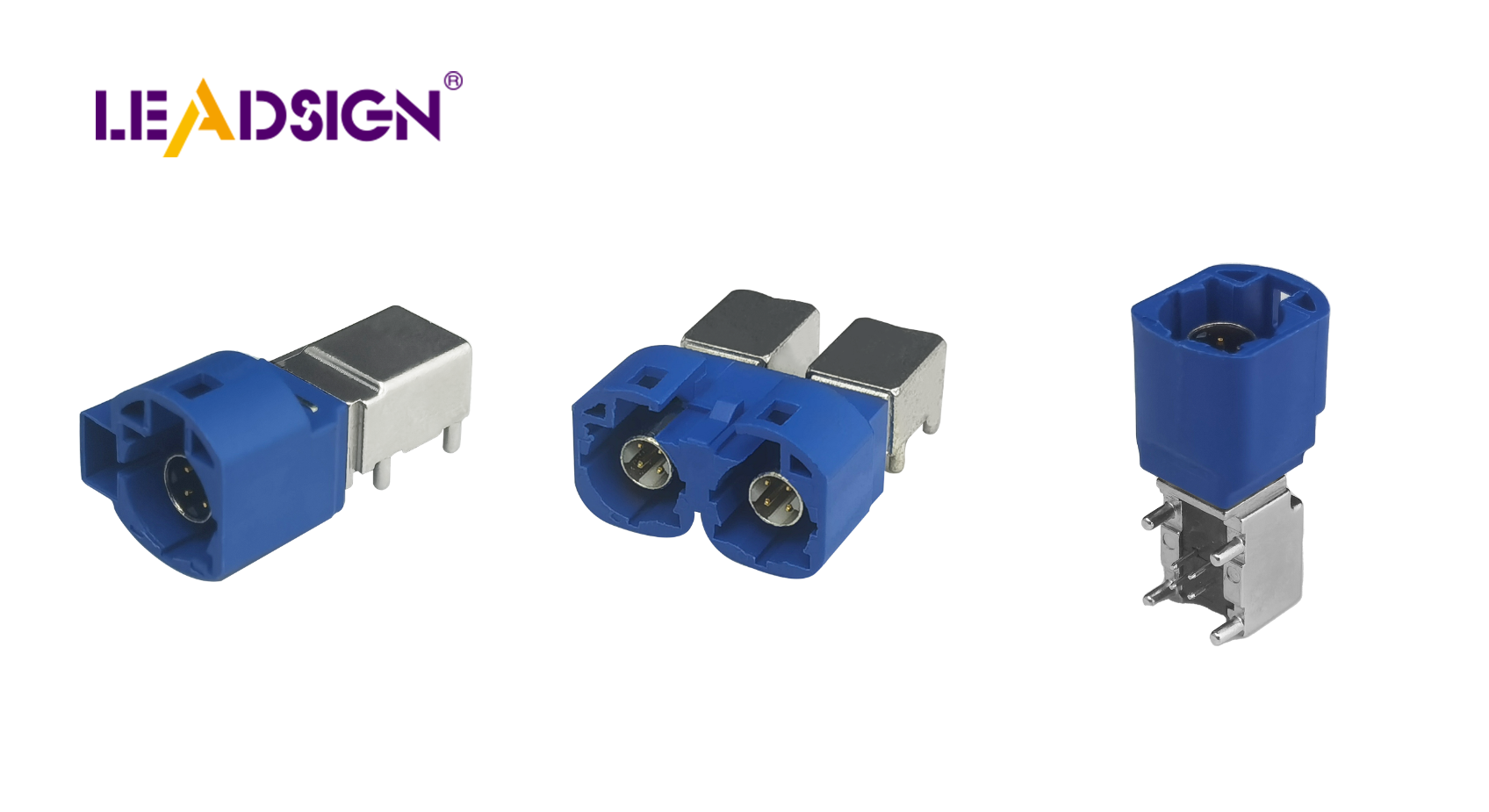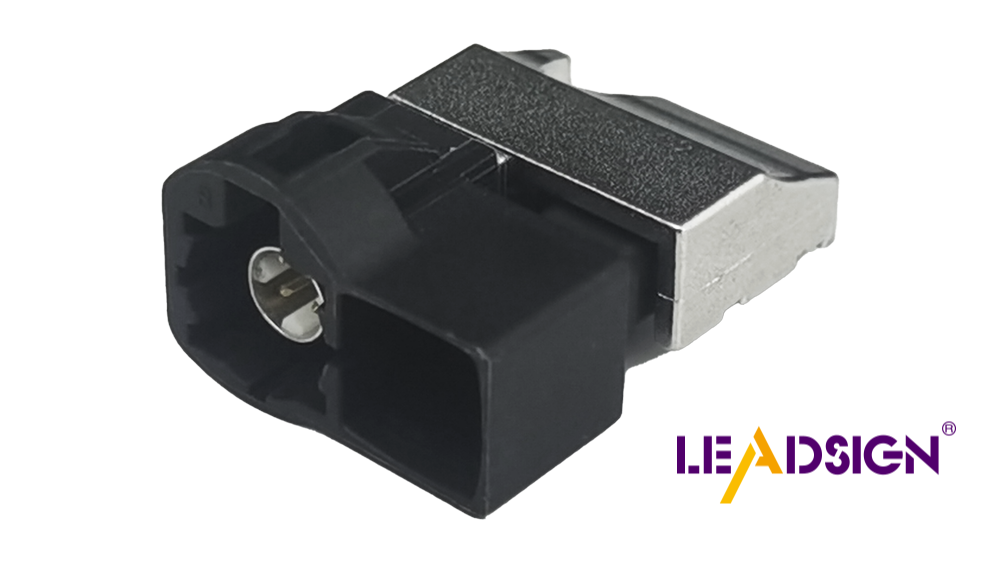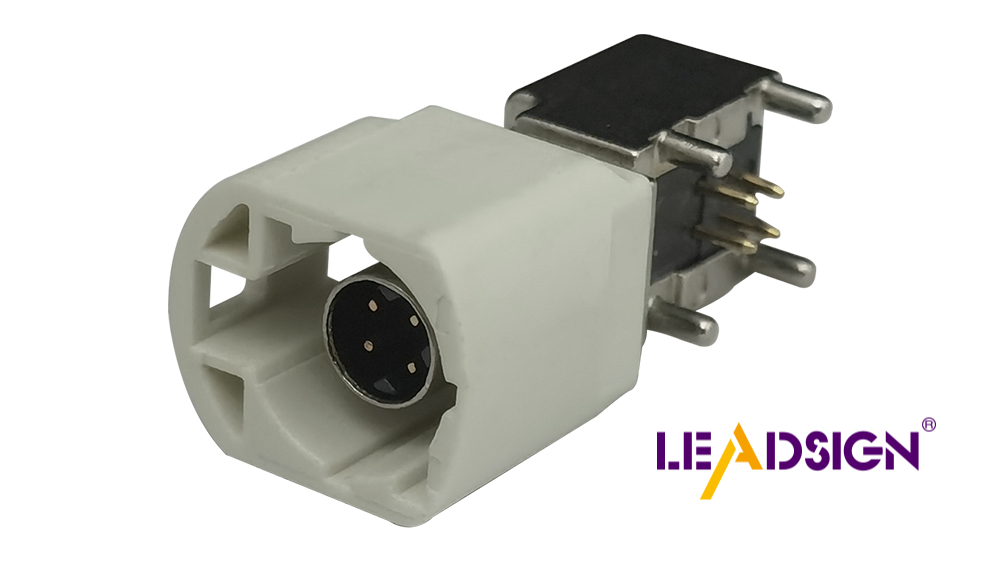Which Vehicle Connectors Are Must-Haves for DIY?

In car maintenance, vehicle connectors are very important. These small parts help car electronics communicate with each other. If you fix cars yourself, you need many connectors. They make installing parts fast and safe. Connectors link different electric circuits effectively. Cars have over 240 connectors. Knowing about them helps you fix cars better. Get the right vehicle connectors to solve any problem you face.
Key Takeaways
Understand the importance of vehicle connectors in car maintenance; they ensure effective communication between car electronics.
Butt connectors are essential for joining wires securely, preventing loose connections that can lead to electrical issues.
OBD-II connectors allow you to diagnose car problems quickly, saving time and money by addressing issues early.
Weatherproof connectors protect your car's wiring from harsh conditions, ensuring reliability and longevity.
Choosing the right connector involves knowing your needs, checking fit, and considering environmental factors.
Use quality connectors to avoid future problems; investing in good materials pays off in reliability.
Always follow installation instructions and safety precautions to ensure proper connections and prevent accidents.
Electrical Connectors

In car care, electrical connectors are key. They help car parts talk to each other. If you fix cars yourself, knowing these connectors helps a lot. Let's look at some important ones you need.
Butt Connectors
Purpose and Common Uses
Butt connectors join two wires. They are used in cars to fix or make wires longer. They keep electricity flowing without stopping.
Why They're Essential
Butt connectors give a strong link. They stop wires from getting loose, which can cause problems. Using them keeps your car's electric parts working well and stops short circuits.
Spade Connectors
Purpose and Common Uses
Spade connectors, or spade terminals, link wires to things like switches. They have a flat shape for easy use. They are great when you need to unplug and plug wires often.
Why They're Essential
Spade connectors are handy and simple to use. They let you connect wires fast without special tools. This is helpful when fixing or changing car parts. With them, you can handle your car's wires easily.
Ring Terminals
Purpose and Common Uses
Ring terminals connect wires to a bolt or screw. They are used for grounding and battery links. The ring shape keeps them tight, even if the car shakes.
Why They're Essential
Ring terminals keep connections strong. They make sure wires and parts stay linked, so your car works well. Using them stops loose links, which can cause electric issues.
Diagnostic Connectors

In car care, diagnostic connectors are very important. They help you know what's wrong with your car. These connectors find problems before they get big. Let's learn about two key diagnostic connectors every DIY mechanic should know.
OBD-II Connectors
Purpose and Common Uses
OBD-II connectors are in most cars made after 1996. They let you link a tool to your car's computer. This helps you see error codes and check systems like the engine. You can use them to find issues like engine misfires.
Why They're Essential
OBD-II connectors give a direct link to your car's brain. They help you find problems fast without guessing. This saves time and money by fixing issues early. A digital multimeter can also be used with an OBD-II connector to check voltage.
CAN Bus Connectors
Purpose and Common Uses
CAN Bus connectors are key in new cars. They help parts like the engine and brakes talk to each other. These connectors make sure all car parts work well together. You can use them to fix communication errors.
Why They're Essential
CAN Bus connectors keep your car's systems working together. Without them, parts might not talk well, causing problems. Using these connectors helps your car run smoothly.
Expert Testimony: Car Experts say electrical connectors are very important. They say, "Car electrical connectors are key parts of new cars, helping systems work together."
Knowing and using diagnostic connectors like OBD-II and CAN Bus can help you fix your car. These tools let you take care of your car, making sure it runs well.
Specialty Connectors
In car care, special connectors are very important. They keep your car's systems working well, even in tough conditions. Let's look at two important special connectors every DIY car fixer should know.
Weatherproof Connectors
Purpose and Common Uses
Weatherproof connectors keep wires safe from water, dirt, and weather. You find them in places like under the hood or near car lights. They are important for keeping car wires working in bad weather.
Why They're Essential
Weatherproof connectors stop water from getting in, which can cause rust and wire problems. Using them keeps your car's wires working, even in bad weather. They have seals and clean themselves, making them very useful for anyone fixing cars in tough conditions.
Quick Disconnects
Purpose and Common Uses
Quick disconnects let you easily unplug wires. You use them where you need to connect and disconnect often, like battery ends or adding new parts. They help you fix things fast.
Why They're Essential
Quick disconnects make fixing and upgrading easy. You don't need special tools to use them. This makes them great for fixing tricky wires. They hold tight, so wires don't come loose by accident.
By using special connectors like weatherproof and quick disconnects, you make your car's systems better. These connectors give protection and are easy to use, making them must-haves for any DIY car fixer.
Tips for Picking and Putting in Connectors
Picking the right vehicle connectors is key for any DIY car fixer. You need to make sure the connectors you choose fit your needs and give strong connections. Here are some tips to help you pick the right ones and put them in correctly.
How to Pick the Right Connector
Things to Think About
Know Your Needs: Figure out what kind of connection you need. Different connectors do different jobs, like electrical or diagnostic. Knowing what you need helps you choose the right one.
Check Fit: Make sure the connector fits the wire size and system's needs. This stops problems like loose connections or electric failures.
Think About Weather: If the connector will face tough weather, pick weatherproof ones. They keep out water and dirt, making them last longer.
Mistakes to Avoid
Ignoring Wire Size: Using a connector that doesn't fit the wire size can cause bad connections. Always match the connector to the wire size.
Skipping Quality: Cheap connectors might save money now but cause trouble later. Buy good connectors for better reliability.
Not Reading Instructions: Each connector type might have special steps to follow. Follow these steps to avoid mistakes and make sure it fits well.
Tools Needed for Putting In
Important Tools
Crimping Tool: This tool is important for attaching connectors to wires. It makes sure the connection is tight and strong.
Wire Strippers: Use these to take off wire covers without hurting them. Proper stripping is needed for a good connection.
Digital Multimeter: This tool helps you check connections and make sure they work right. It checks if the connection is complete and measures voltage.
Tips for Good Installation
Get Your Space Ready: Keep your area neat. Have all your tools ready, including your tool kits and tool set.
Be Safe: Unplug the battery before working on electric parts. This stops shocks or short circuits.
Check Connections: After putting them in, use a multimeter to make sure connections are safe and working. This step makes sure everything works right.
By picking the right connectors and using the right car tools, you can make your DIY projects better. These tips will help you avoid common mistakes and do a good job installing.
As a DIY car fixer, knowing vehicle connectors is key. These connectors help car parts talk to each other, making your car work better and last longer. There are different types like electrical, diagnostic, and special connectors. Each one is important for keeping your car in good shape. Picking the right connectors makes sure everything works well. Have these must-have connectors in your toolkit to handle any car problem easily.
FAQ
What are car electrical connectors and how do they improve vehicle performance?
Car electrical connectors are very important in cars today. They help electricity move between different parts. These connectors let car parts talk and share power, like lights and engines. Without them, cars wouldn't work well. They keep everything connected so cars run their best.
How do I choose the right automotive connectors?
Picking the right car connectors is important for your car to work well. Here's a simple way to choose:
Know What You Need: Figure out what kind of connection you need. Different connectors do different jobs, like electrical or checking problems.
Check If It Fits: Make sure the connector fits the wire size and what the car needs. This stops loose connections or electric problems.
Think About Weather: If the connector will be in bad weather, pick weatherproof ones to keep out water and dirt.
Why are socket connectors important in vehicles?
Socket connectors are key in cars because they keep parts connected safely. They make sure power and signals move well between car parts. This is important for the car to work and be safe.
Can I install socket connectors myself?
Yes, you can put in socket connectors yourself if you have the right tools and know-how. Have a crimping tool, wire strippers, and a digital multimeter ready. Follow steps carefully to connect them right. Always unplug the battery first to stay safe from shocks.
What are the common mistakes to avoid when using socket connectors?
When using socket connectors, don't make these mistakes:
Ignoring Wire Size: Make sure the connector fits the wire size to avoid bad connections.
Using Cheap Connectors: Buy good connectors for better work and longer use.
Skipping Steps: Follow the steps to avoid mistakes and make sure it fits right.
How do socket connectors enhance vehicle safety?
Socket connectors make cars safer by keeping important parts like lights and brakes connected well. They make sure these parts work right, stopping problems that could cause accidents. By keeping strong connections, they help keep the car safe.
Are there different types of socket connectors for specific applications?
Yes, there are different socket connectors for special uses. For example, weatherproof ones are for wet places, and quick disconnects are for parts you unplug often. Picking the right one for each job helps them work best and last long.
See Also
Exploring Mini FAKRA Connectors' Benefits for Today's Cars
Why HSD Connectors Are Essential for Automotive Applications
Understanding the Role of Fakra Connectors in Vehicles
Transforming Vehicle Connectivity with HFM Connector Benefits
Enhancing Data Transfer in Vehicles with Advanced Connectors

